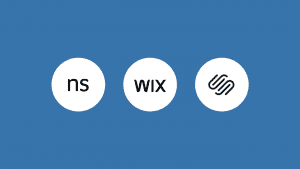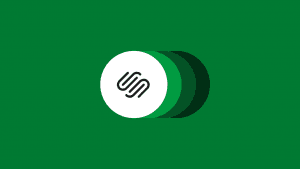Feature Author and IT Professional, David Strom
Key Takeaways:
- Selling an unused IP address block can help generate revenue from an underperforming corporate asset.
- My own experience is typical of owning what is called a legacy block.
- Network Solutions played an important role in assigning these blocks back in the 1990s.
For the past 27 years, I have owned a class C or /16 block of IPv4 addresses. I don’t recall what prompted me back then to apply for my block: I didn’t really have any way to run a network online, and the Internet was just catching on at the time. The transaction took moments with the exchange of a couple of emails, and there was no cost to obtain the block.
Earlier this year I was reminded that I still owned this block and that I could sell it and make some quick cash. What was interesting is that in all the years I had the block I had never really used it for anything. I had never set up any computers using any of the 256 IP addresses associated with it. In used car terms, it was in mint condition. Virgin cyberspace territory. So began my journey into the used marketplace that began just before the start of the new year.
I wrote an eBook for Network Solutions based on this experience if you want to learn more about the address block aftermarket. But in this article, I’ll tell the story about what I learned and what I would do differently. Beware that it isn’t easy or quick money by any means. It will take a lot of work and a lot of your time.
Get Your Ownership Documents in Order
First, you will want to get your ownership documents in order. In my case, I was fortunate that I had old corporate tax returns documenting that I owned the business since the 1990s. It also helped that I was the same person that was communicating with the regional Internet registry ARIN that was responsible for the block now. Then I had to transfer the ownership to my current corporation (yes, you have to be a business and, fortunately for me, I have had my own sub-S corps to handle this) before I could then sell the block to any potential buyer.
Getting these records in order took the longest amount of elapsed time, because of the clunky way that ARIN staff and I had to communicate. I had to open a trouble ticket — actually several tickets — and wait for their staff to respond to my request. Then I would provide whatever documentation they needed, and wait for the next step in the process. This was a very cumbersome process, and I get why: ARIN wants to ensure that I am not some address scammer and that they are selling legitimate goods. If I was going to do this again I would learn more about this process to streamline things.
How to Pick the Best Address Brokerage
During this process, I had to pick an address block brokerage to represent me and manage the transaction. When you think about this, it makes sense. I have bought and sold many houses — all of which were done with real estate brokers. You want someone that both buyer and seller can trust, that can referee and resolve issues and (eventually) close the deal. Having this mediator can also help in the escrow of funds while the transfer is completed — like a title company. Also, the broker can work with the regional registry staff and help prepare all the supporting ownership documentation. They do charge a commission, which can vary from several hundred to several thousand dollars, depending on the size of the block and other circumstances. One big difference between IP address and real estate brokers is that you don’t know what the fees are before you select the broker – which prevents you from shopping based on price.
ARIN has this list of brokers who have registered with them. They show 29 different brokers, along with contact names and phone numbers and the date that the broker registered with ARIN. Note this is not their recommendation for the reputation of any of these businesses. There is no vetting of whether they are still in business, or whether they are conducting themselves in an honorable fashion. As the old saying goes, on the Internet, no one knows if you could become a dog.
Picking the right broker is something that I discuss in detail in my eBook, but basically you have to decide whether to rent out your block or sell it outright. Also, some brokers specialize in larger blocks and won’t sell or lease anything less than a /24 for example.
I picked Hilco’s IPv4.Global brokerage to sell my block. They came recommended and I liked that they listed all their auctions right from their home page, so you could spot pricing trends easily. For example, earlier this year other /24 blocks were selling for $20-24 per IP address. I decided to sell my block at $23 per address, which in hindsight seems like a fair price. It took several weeks to sell my block and about 10 weeks overall from when I first began the process to when I finally got the funds wired to my bank account from the sale. They charged me about 15% of my sale for their commission, which seems about the right amount.
If all that seems like a lot of work to you, then perhaps you just want to steer clear of the used marketplace for now. But if you like the challenge of doing the research, you could be a hero at your company for taking this task on.
About David Strom:
David Strom is an award-winning writer, speaker, editor, video blogger, and online communications professional who advises numerous startup and well-established technology ventures. His career began as an in-house IT analyst and he has founded numerous technology print and online publications, such as editor-in-chief of Network Computing magazine and as part of the launch team of PC Week’s Connectivity section. Strom has written two books and spoken around the world at various conferences and been on national radio and television talking about network technologies. His areas of expertise include networking, security, channel, PC enthusiasts, OEMs and consumers. Over the years he has written publications at CMP, IDG, Ziff-Davis, Techtarget, Internet.com and the New York Times about business use of technologies.




